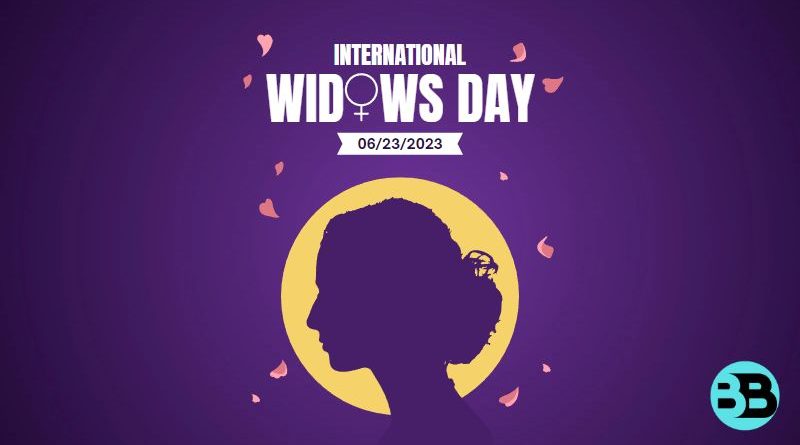International Widows’ Day: Empowering Widows for a Brighter Future
International Widows’ Day, observed annually on June 23rd, serves as a global platform to raise awareness about the challenges faced by widows and advocate for their rights and well-being. Widows around the world encounter numerous difficulties, including economic hardship, social isolation, limited access to education and healthcare, cultural stigmatization, and legal barriers. This article delves into the significance of International Widows’ Day, the issues widows face, and the efforts being made to empower them for a brighter future.
Section 1: Understanding the Challenges Faced by Widows
1.1 Widows and Poverty:
The economic impact of widowhood
Lack of financial support and income-generating opportunities
Widows as vulnerable targets for exploitation and abuse
1.2 Social Isolation and Discrimination:
The social stigma attached to widowhood in various cultures
Isolation from family and community support systems
Limited access to social activities and networks
1.3 Legal and Cultural Barriers:
Inheritance rights and property ownership
Remarriage restrictions and societal expectations
Gender-based discrimination and lack of legal protection
Section 2: International Widows’ Day: Raising Awareness and Promoting Rights
2.1 The Origins and Significance of International Widows’ Day:
The history and establishment of the observance
The role of the United Nations in promoting widows’ rights
Global recognition and participation in International Widows’ Day
2.2 Advocacy and Awareness Campaigns:
Prominent organizations and their initiatives
Education and public outreach programs
Media and online platforms as tools for awareness
2.3 Policy and Legal Reforms:
Addressing legal and cultural barriers through policy changes
Examples of countries implementing reforms for widows’ rights
Challenges and opportunities in advocating for widows’ rights at the international level
Section 3: Empowering Widows: Support and Intervention
3.1 Financial Support and Economic Empowerment:
Microfinance and income-generating programs
Vocational training and entrepreneurship opportunities
Social protection schemes and pensions for widows
3.2 Health and Well-being:
Access to healthcare and mental health support
Addressing the physical and emotional consequences of widowhood
Community support networks and counseling services
3.3 Education and Skill Development:
Enhancing educational opportunities for widows and their children
Scholarships and educational grants
Adult literacy programs and vocational training
3.4 Legal Aid and Advocacy:
Ensuring access to legal representation and justice
Lobbying for legal reforms and enforcement of existing laws
Collaborative efforts between NGOs, governments, and legal institutions
International Widows’ Day serves as a crucial platform to shed light on the challenges faced by widows worldwide and advocate for their rights and empowerment. While progress has been made in recognizing and addressing these issues, there is still much work to be done. By raising awareness, promoting policy reforms, and providing support services, we can create a more inclusive and equitable society for widows. It is essential for governments, organizations, and individuals to join forces, amplify the voices of widows, and work towards eliminating the discrimination and barriers they face. Through collective action, we can empower widows to rebuild their lives, pursue their dreams, and contribute meaningfully to their communities. International Widows’ Day reminds us of the importance of compassion, solidarity, and justice in creating a brighter future for all widows worldwide.




